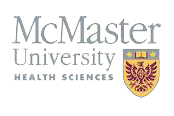1. Can the Academic Background of Medical Graduates be Detected During Internship
There was no detected difference in performance between the graduates who met the “traditional” admissions criteria (undergraduate GPA of 3.1 or greater on a 4-point scale and previous training in biology, general and organic chemistry, and physics), and those who lacked one or both of the prerequisites. Suggests that medical schools can expand their admissions criteria without fear of underperformance because of a lack of traditional academic preparation for medical school.
The science-focused group attained higher mean scores on three science sections of the National Board of Medical Examiners Part I examination and the broadly prepared group scored higher on the Behavioral Sciences sections.
3. Medical Students from Natural Science and Nonscience Undergraduate Backgrounds
They compared academic performance and residency selection of natural science and nonscience majors in three separate medical school classes. Examination scores revealed no significant differences across three class replications.
The usefulness of the model is difficult to interpret but the findings regarding OT-GPA support the continued use of undergraduate GPA, scores on three sections of the Graduate Record Examination, and essays, but not reference forms.
5. Science Versus Nonscience Undergraduate Studies for Medical School: A Study of Nine Classes
Results indicated that nonscience students performed as well as or better than traditional science trained students on almost all performance measures.
The results of the survival analysis indicated that (1) while the risk and timing of academic difficult varied across the groups studies, a majority of the students who experienced academic difficulty eventually graduated from medical school; and (2) students with non-science undergraduate majors did not have a greater risk of academic difficulty.
